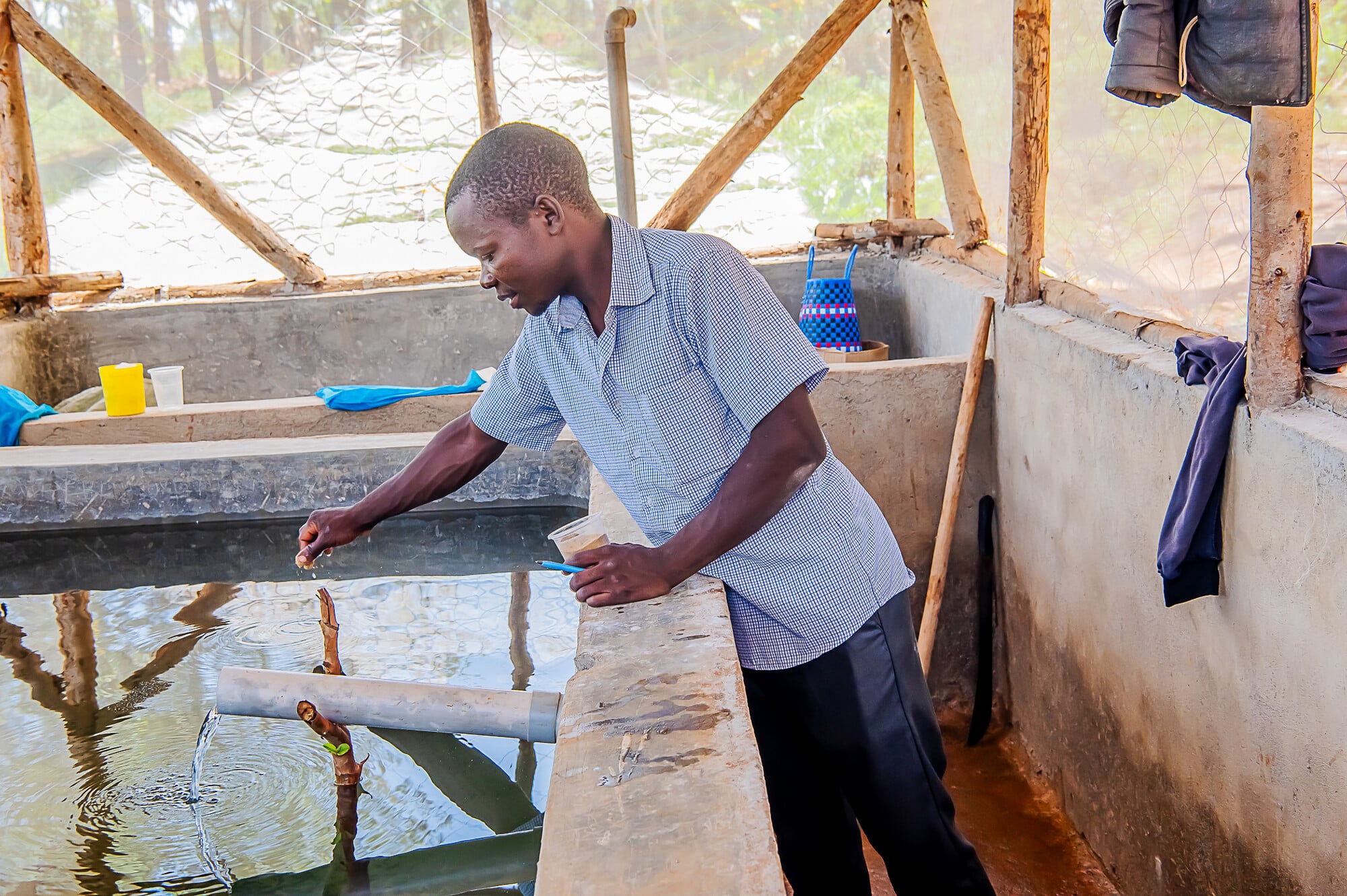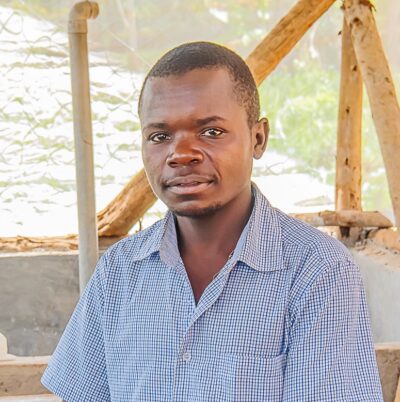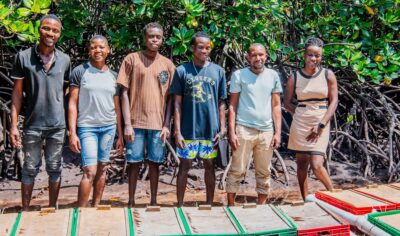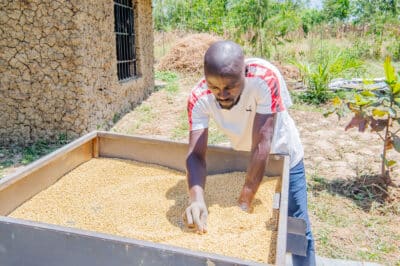Stories
Kenya
12 August 2025
From coop to pond: navigating the transition from poultry to aquaculture

Managing a business remotely can be challenging, especially when it requires constant, hands-on care like poultry farming. This realisation led Joseph Sika, a young ‘agripreneur’ and participant in the Mastercard Foundation and Farm Africa’s Youth in Sustainable Aquaculture (YISA) programme in Kenya’s Siaya county, to make a bold shift.
Amidst the disruptions of the COVID-19 pandemic, Joseph transitioned from poultry farming to fish farming. This venture offered him more flexibility, fewer disease outbreaks and better scalability while he continued with his university studies.
“When I was in my second year in 2020, during the COVID-19 outbreak, I was engaged in poultry farming,” Joseph explains. “But I realised I couldn’t manage poultry while being away. That’s when I discovered that with fish farming, I could employ someone to feed the fish in my absence. I also noticed that fish are less prone to diseases compared to poultry. That’s when I decided to transition from poultry to fish farming.”
After venturing into fish farming, Joseph registered his enterprise as Nyai Fish Farm and chose to focus on the production of fingerlings (young fish).
Sourcing fingerlings is one of the major challenges faced by fish farmers in the region. “In our area, no one is engaged in fingerling production. Farmers have to travel at least two km to access fingerlings, and by the time they transport them to their nurseries, often taking approximately two hours, nearly 75% of the stock ends up dead. I’ve ventured into fingerling production to help address this challenge and support fellow fish farmers in the region,” he says.
The impact of the YISA programme
Joseph is one of the YISA programme participants who received funding from the Challenge Fund, opportunities for financially disadvantaged young women and men. The fund aims to ensure all actors in the programme’s value chains have equal access to finance.
“After completing the incubation process, I developed my business plan, which was fortunately approved by the YISA programme partners. I received close to USD 9,000 to expand my fingerling production business,” says Joseph.

Joseph says the funding has completely transformed his life.
“Through the Challenge Fund, I was able to construct a nursery pond where I now raise frys into fingerlings. In a month, I expect to generate approximately 1,000,000 Kenyan Shillings (KES) from fingerling production alone.”
Besides receiving funds from the Challenge Fund, Joseph has benefited from several training sessions, particularly in business management, through the business development services offered by Farm Africa. He says this training has equipped him with the skills needed to effectively manage and eventually scale up his business.
“One of the key outcomes of the incubation process was the training on record keeping,” he explains. “At the beginning, I was asked how far I had gone with my project and how much I had spent, but I couldn’t provide accurate answers because I didn’t have any records. Now, I document every shilling spent on the farm.”
"As a participant, I can say the YISA programme is doing a great job. The training helped me, and I truly appreciate the support. They are making a positive impact."

Joseph Sika
Founder, Nyai Fish Farm
Joseph adds that he has also learnt how to maintain and grow his business over time.
“I’ve learnt how to ensure the business continues to expand, even after implementing what was outlined in my business plan. I’ve also gained knowledge on job creation, with a focus on creating meaningful employment opportunities for young people and using resources more efficiently.”
Job opportunities through Nyai, Fish Farm
In addition to expanding his business, Joseph is committed to tackling youth unemployment in Kenya by creating job opportunities for young people.
“As outlined in my business plan, I aim to create 36 dignified and meaningful jobs for young women and men within six to eight months. So far, I’ve employed seven young people on my farm,” he says.
36
Joseph aims to create 36 jobs for young people as he expands his fingerling production company.
With his planned expansion, Joseph hopes to hire even more young people. “With the goal of producing 200,000 fingerlings per month, I’ll definitely need more hands on the farm. Right now, I’m producing about 15,000 fingerlings monthly. Once I scale up to 200,000, I’ll significantly increase the number of employees,” he adds.
Dreaming beyond Kenya
Looking ahead, Joseph envisions uniting likeminded, visionary young people to establish a large-scale fingerling production company that can serve markets beyond Kenya.
“I have a dream of growing my business to a national, and even international, level,” he shares. “I’m looking for visionary and interested young women and men so we can come together and build a company that specialises in fingerling production. My goal is to supply fingerlings not just within our region or country, but globally,” Joseph says.




